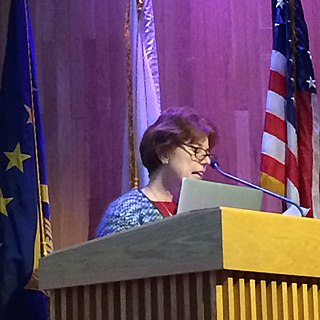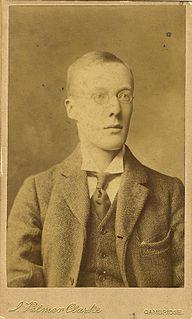
Barbara Jacak is a nuclear physicist who uses heavy ion collisions for fundamental studies of hot, dense nuclear matter. She is Director of the Nuclear Science Division, Lawrence Berkeley National Laboratory, and a professor of Physics at UC Berkeley. Before going to Berkeley, she was a member of the Department of Physics and Astronomy at Stony Brook University, where she held the rank of Distinguished Professor. She is a leading member of the collaboration that built and operates the PHENIX detector, one of the large detectors currently operating at the Relativistic Heavy Ion Collider at Brookhaven National Laboratory, and was involved in the discovery of the quark gluon plasma and its strongly coupled, liquid-like behavior. Throughout her career she has served on many advisory committees and boards including the National Research Council Committee on Nuclear Physics, and the Physical Review C Editorial Board.

Julian Parkhill FRS is a Professor in the Department of Veterinary Medicine at the University of Cambridge. He was previously head of Pathogen Genomics at the Wellcome Trust Sanger Institute.
The Burkitt Medal is awarded annually by the British Academy "in recognition of special service to Biblical Studies". Awards alternate between Hebrew Bible studies and New Testament studies. It was established in 1923 and has been awarded to many notable theologians. It is named in honour of Francis Crawford Burkitt.
William James Sutherland is the Miriam Rothschild Professor of Conservation Biology at the University of Cambridge. He is currently the President of the British Ecological Society. He has been a Fellow of St Catharine's College, Cambridge since 2008.

Michael Edward "Mike" Goddard is a professorial fellow in animal genetics at the University of Melbourne, Australia.
Bedangadas Mohanty is an Indian physicist specialising in experimental high energy physics, and is affiliated to National Institute of Science Education and Research, Bhubaneswar. He was awarded the Shanti Swarup Bhatnagar Prize for Science and Technology in 2015, the highest science award in India, in the physical sciences category. He has been elected as the fellow of the Indian National Science Academy, New Delhi, Indian Academy of Sciences, Bangalore and National Academy of Sciences, India.












